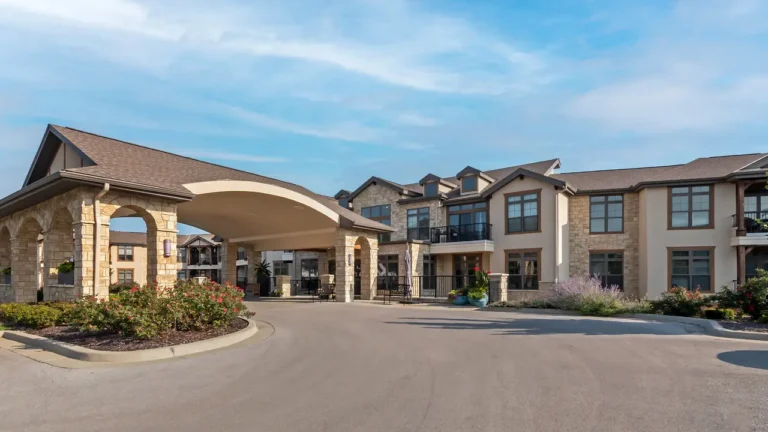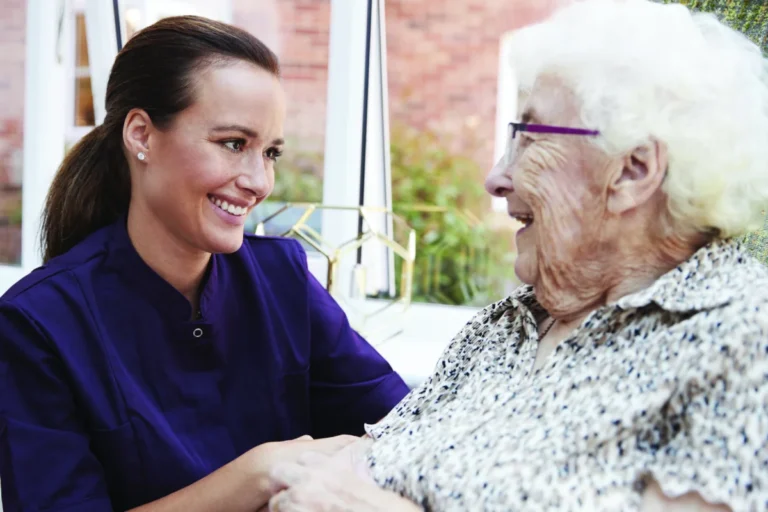In the early years of life, the brain forms more than a million new neural connections every second. By the age of 6, the size of the brain increases to about 90% of its volume in adulthood. Then, in our 30s and 40s, the brain starts to shrink; brain shrinkage continues to increase with age. With brain shrinkage comes many of the neurological challenges that are common later in life.
Memory loss and forgetfulness are two common struggles for seniors over the age of 65. There are some familiar changes to memory and daily living that can be attributed to brain changes as a normal part of aging:
- Challenges in committing new information to memory
- Difficulty remembering appointments, social plans or to take medications without reminders
- Trouble recalling names, numbers or details
- Inability to multi-task
For aging adults and their loved ones, it is important to understand the difference between normal brain changes due to aging and memory loss that may be a symptom of cognitive impairment or a disease of cognitive function, such as dementia. Once it is clear why the brain is changing, it is much easier to find the right support and create a lifestyle that promotes health and happiness.
Understanding Memory Loss
Not every sign of memory loss is a sign of dementia or other diseases of cognitive function, but some do indicate a more serious problem than age-related memory loss. Here is a summary of the different levels of memory loss:
Age-associated memory impairment
This type of memory loss includes difficulty with memory, but the memory loss does not disrupt daily life or impede the tasks the senior would normally complete. While a senior with age-associated memory impairment may have difficulty learning and remembering new things, there is no underlying medical condition that causes the memory problems. Seniors with this condition may have difficulty remembering where they put their keys or remembering a log-in or password for a website, but these are not signs of dementia.
Mild cognitive impairment
This condition causes the senior to experience memory loss and other symptoms, including disorientation and difficulty speaking. However, seniors with mild cognitive impairment, or MCI, are able to conduct their daily routines and functions. While having MCI does not mean a senior has dementia, people with MCI are at a greater risk of developing a disease of cognitive function.
Dementia
Seniors are diagnosed with dementia when their memory loss is severe to the point that it affects their daily lives, they find it difficult to learn new things, they are unable to complete tasks with which they are familiar and others close to them notice changes in their abilities.
There are numerous ways to tell the difference between memory difficulties or memory loss associated with normal aging and dementia. Here are some examples of each:
Examples of Memory Loss as Part of Normal Aging
- Seniors are not able to remember details of an event or conversation that took place more than a year ago.
- Seniors cannot remember the name of an acquaintance.
- Seniors share concerns about their memory, but loved ones are not worried.
- Events are occasionally forgotten.
- Seniors may have difficulty finding words.
Symptoms of Dementia
- Seniors are unable to recall recent conversations or events.
- Friends and family members express concerns about memory loss, but the senior is not aware of any issues.
- Seniors frequently forget events.
- Seniors make substitutions when finding words or pauses because of forgetting words.
- Seniors are unable to recall the names of family members or recognize familiar faces.
While some changes to our brains are just a part of growing older, there are ways to take charge of brain health. Making positive lifestyle changes, including getting enough sleep, keeping the brain active and eating a diet that promotes brain health and brain function, is a great place to start!
Food for Brain Health
The brain requires more energy than any other organ in the body. Just like the other organs, the brain requires healthy food with certain vitamins and nutrients for fuel. These nutrients help to build brain structure, enable learning, thinking and acting, and keep cells working the way they should.
So, what are the foods that improve brain function? Key vitamins and nutrients for brain health include:
- Vitamin E
- Vitamin B
- Omega-3 fatty acids
- Choline
- Antioxidants
These vitamins and nutrients help to promote optimal brain function, and they occur in natural foods that are available every day. At many senior living communities, like the memory care communities at Tutera Senior Living & Health Care, on-site chefs prepare snacks and meals filled with nutrition to help support optimal wellness and brain health, while on-site dietitians help residents manage their unique nutritional needs. Here are some examples of foods that are good for brain and memory that provide the vitamins and nutrients needed to support brain health:
- Wild salmon and other fatty fish, such as herring and trout
- Avocados
- Blueberries
- Whole grains, such as brown rice, oats and quinoa
- Chia and flax seeds
Brain Food to Improve Memory
There are many ways the foods we eat support brain health. In fact, certain foods actually help to support and improve different functions of the brain. For example, foods like nuts and eggs contain nutrients that support brain development. To help protect the brain from damage, the best foods to eat are fruits, vegetables, tea and coffee.
For senior adults and their families who may be concerned about memory loss, these foods are proven to boost memory, mood and alertness:
- Nuts
- Dark chocolate
- Fatty fish
- Blueberries
- Turmeric
- Broccoli
- Coffee
- Oranges
- Green tea
- Pumpkin seeds
- Eggs
About Tutera Senior Living & Health Care
At Tutera Senior Living & Health Care, we recognize that, to live your best life, your needs, wants and preferences have to come first. We are committed to:
- Enabling healthy-as-possible outcomes
- Encouraging continued personal growth
- Empowering the ability to direct and control daily living decisions
Each resident’s personal goals and opinions are at the heart of everything we do at Tutera Senior Living. We refer to this as our YOUNITE philosophy – one that is built around you from the very moment you move in and each day after. We get to know your likes, dislikes, goals, dreams and challenges, and we create a unique living and health care experience that is just right for you.
Each Tutera Senior Living community offers services, amenities, team members and culture that work together to encourage residents’ independence and to respect their individuality. Tutera Senior Living has communities that offer:
- Independent Living
- Assisted Living
- Memory Care
- Thrive Memory Care
- Rehabilitation & Extended Stay
- Respite Program
Interested in finding a Tutera Senior Living community near you? Our location finder can help you do just that! Have questions about the care, nutrition planning and culture at Tutera communities? Contact us today for answers!







